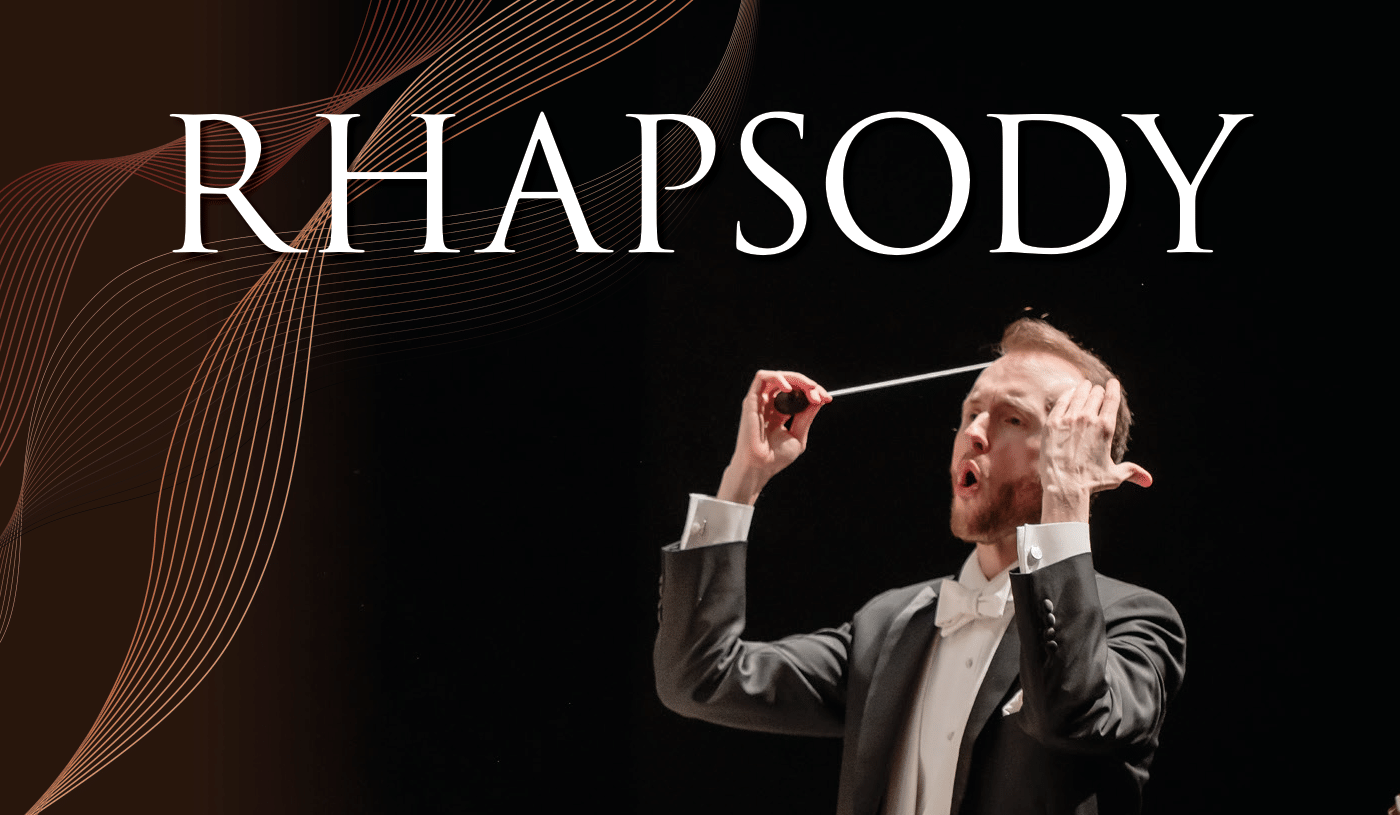
Saturday, April 6, 2024 • 7:30 p.m.
Shorecrest Performing Arts Center (15343 25th Ave NE, Shoreline)
Harmonia Orchestra & Chorus
William White, conductor
Joseph Vaz, piano
Ellaina Lewis, soprano
Melissa Plagemann, mezzo-soprano
Brendan Tuohy, tenor
Zachary Lenox, baritone
Program
Leonard Bernstein (1918–1990)
Candide Overture
George Gershwin (1898–1937)
Rhapsody in Blue
— intermission —
William C. White (*1983)
Cassandra [world premiere]
- full concert program (PDF)
About the Concert
An all-American program with a dramatic flair, this concert promises to be one of the most lively, toe-tapping events of the season!
Maestro’s Prelude
Dear Listener,
Tonight’s program is all about the drama — and honey, I am here for it.
Much of our time tonight will be spent in Ancient Greece, where drama came in two varieties: comedy and tragedy. (Just picture the masks!) Our concert divides neatly along these lines, starting with two of the greatest musicians ever to lend their talents to the American stage.
First, Leonard Bernstein — the Maestro himself — is represented with the curtain-raiser to his operetta Candide, described by some (including me) as “the perfect overture.” It bubbles, it sparkles, it shines, it positively bounces off the stage! Stephen Sondheim called Candide “Lenny’s best score,” and while we could argue ’til we’re blue in the face about whether West Side Story edges it out, I’d suggest that we not — and just enjoy the music.
Bernstein’s great hero as a young man was George Gershwin (like Bernstein, the son of Eastern European immigrants), who had risen to spectacular fame on Broadway and in Hollywood, synthesizing classical, jazz and show music. His unquestioned masterpiece is the opera Porgy and Bess, but his most beloved work has to be Rhapsody in Blue, celebrating its 100th birthday this year.
You’ll often hear the cliché that such-and-such a piece sounds “as fresh today as the day it was written.” Not having been around in 1924 myself, I can’t attest to that, but I can tell you that in spite of the fact that I’ve heard this piece a quarter of a bajillion times, when I listen to it, I still find myself smiling, laughing and beaming with joy in a way that few other pieces compel me to do.
Our guest artist for the Gershwin is Joseph Vaz, a young man who — and I say this at the certain risk of his embarrassment — has made me very proud. Joey was a student in the Cincinnati Symphony Youth Orchestra when I was the conductor, and we’ve become friends and colleagues in the intervening years. It’s a great treat to have him in Seattle this week, and I’m sure you’ll agree when you hear him take to the keyboard.
Prepare yourselves, listeners, for at this point in the program the mood is going to change drastically — dramatically, one might even say. Tonight is a big night for me personally, since it marks the unveiling of my largest composition to date, an opera-oratorio titled Cassandra. This has been an all-encompassing project for me, from co-creating the libretto (with my cousin, a Classics scholar), to writing the music, to collaborating with the singers, to fine tuning it with the orchestra and chorus.
I’ll let you read more about the piece further on in the program notes, and I’ll use my final column-inch here to thank all the magnificent artists who have lent their talents to bringing this work to fruition. It’s a dream come true
— William White
Solo Artists
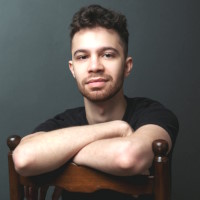
Described as “a performer of complex repertoire” (Isle of Wight Arts League Creative Voice), pianist Joseph Vaz has appeared as a soloist and chamber musician in the United States, Canada, Austria, UK and Italy, in venues\ from Carnegie Hall to the Arnold Schönberg Center in Vienna. Born in Faro, Portugal, Mr. Vaz now lives in New York City, where he studies at the CUNY Graduate Center with the renowned pianist and pedagogue Julian Martin. He is a laureate of several national and international competitions since 2012, with recent appearances at the Pacific Stars, James Mottram and Seattle International Piano Competitions. Mr. Vaz frequently performs at international festivals, including recent appearances at the Aspen Music Festival, Internationale Sommerakademie in Reichenau, Orford Music Academy, Bowdoin Music Festival and Chautauqua Piano Institute. His orchestral debut came with the Cincinnati Pops Orchestra in 2015, and he has also performed as soloist with the Seven Hills Sinfonietta and other ensembles. Outside of music, he holds a bachelor’s degree in mathematics and a minor in French from Indiana University and loves reading modern classics.
- Learn more: josephvaz.com
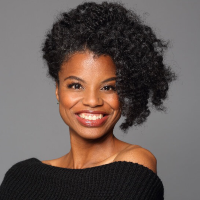
Soprano Ellaina Lewis demonstrates an extensive range of vocal and dramatic ability. Originally from Washington, D.C., she now makes her home in Seattle. In addition to Seattle Opera, where she sang the roles of Girlfriend II in Blue and Strawberry Woman in Porgy and Bess, Ms. Lewis has performed with numerous other arts organizations across the region, including Puget Sound Opera, Tacoma Opera, Seattle Choral Company, Everett Philharmonic, Sammamish Symphony, ArtsWest, Northwest New Works Festival, Northwest Opera in Schools, Etc., Ladies Musical Club, Cascade Symphony and Pacific Northwest Ballet School. Her principal opera roles include Violetta in La Traviata, Amina in La Sonnambula, Monica in The Medium, the title role in Treemonisha, Erzulie in Flaherty’s Once on This Island, Pamina in The Magic Flute and Gertrude in Hansel and Gretel. On the concert stage, her repertoire ranges from Haydn’s Creation and Mozart’s Exsultate Jubilate to Villa Lobos’ Bachianas Brasileiras No. 5 and Gershwin’s Porgy and Bess. Ms. Lewis often blends her love of singing and her passion for dance, collaborating with S.D. Prism Dance Theater and contributing vocal improvisations as dancers interpret the choreography of Sonia Dawkins.
- Learn more: lainalousoprano.com
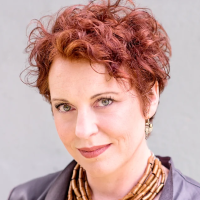
Mezzo-soprano Melissa Plagemann has been praised by audiences and the press for her “clear, burnished voice” and “mezzo rich with an alto’s strength and a soprano’s shining top edge” (Tacoma News Tribune). She enjoys a busy and vibrant performing schedule throughout the Pacific Northwest and beyond. This season she sings the U.S. premiere of Tyler Futrell’s
Stabat Mater with the Seattle Chamber Orchestra. Recent opera roles include Nicklausse (Tales of Hoffmann), the witch and the mother in Hansel and Gretel, Suzuki (Madama Butterfly), and both the second and third ladies in Mozart’s Magic Flute. She holds degrees in music from the University of Victoria and Indiana University at Bloomington, teaches on the faculties of Pacific Lutheran University and Western Washington University, and is a managing diva with Opera on Tap Seattle and a teaching artist with Seattle Opera
- Learn more: melissaplagemann.com
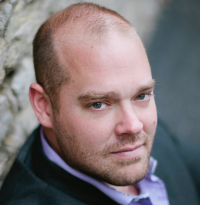
Brendan Tuohy has been lauded by The Cincinnati Post for his “big, bold tenor edged with silver,” and he continues to move audiences both in the U.S. and overseas. Recent appearances include Nemorino in L’elisir d’amore with Tacoma Opera, David Lang’s The Little Match Girl Passion with Eugene Opera, and the role of Rent-a-Cop in the world premiere of Evan Mack’s Yeltsin in Texas. In 2018 he returned to the Grant Park Music Festival to sing Haydn’s Theresienmesse, following a 2017 performance of Beethoven’s Ninth. Other engagements have included Rachel Portman’s The Little Prince with Opera Theater Oregon, Haydn’s The Seasons and Handel’s Messiah with Harmonia, Britten’s War Requiem at the University of Washington, and the iSing International Music Festival in Suzhou, China. He has performed on the opera stage at Eugene Opera, City Opera Bellevue, Vashon Opera and Berlin Opera Academy, and in concert with the Oregon Symphony, Seattle Symphony, Pacific MusicWorks and Symphony Tacoma. Mr. Tuohy completed his academic training at the University of Cincinnati College-Conservatory of Music with a master’s degree in vocal performance.
- Learn more: brendan-tuohy.com
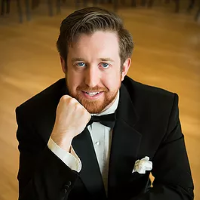
Praised for “a broad, resonant baritone that is exquisitely controlled throughout his entire range,” Zachary Lenox has performed across North America, including the role of Silvio (Pagliacci), Marcello (La Bohème), Marullo (Rigoletto), Count Almaviva (Le nozze di Figaro), Guglielmo and Don Alfonso (Così fan tutte), Papageno (Die Zauberflöte), Father (Hansel and Gretel), Sid (Albert Herring), Gianni Schicchi and Betto (Gianni Schicchi), and Dick Deadeye (H.M.S. Pinafore). He has appeared with Portland Opera, Opera Parallèle, Pacific Music Works, Cascadia Chamber Opera, Portland Summerfest, Portland Chamber Orchestra, Portland Concert Opera, Eugene Concert Choir, Bravo Northwest and the Astoria Music Festival. Concert appearances include Handel’s Messiah, Samson and Judas Maccabeus, Haydn’s Lord Nelson Mass, Schubert’s Mass in G, the Mozart, Verdi and Fauré Requiems, Orff’s Carmina Burana and many works of J.S. Bach, including both the role of Jesus and the baritone arias in the St. Matthew Passion with Harmonia. His engagements this season include Beethoven’s Ninth with the Oregon Symphony, Handel’s Messiah with Harmonia, and Elgar’s The Dream of Gerontius with Festival Chorale Oregon.
- Learn more: zacharylenox.com
Soprano Karen Dunstan hails from Ypsilanti, Michigan. She holds a Bachelor of Arts in Music and in 2023 completed a Master of Music in Vocal Performance at the University of Washington. Ms. Dunstan has appeared in many opera productions, including La Bohème, Dido and Aeneas and L’Elisir d’Amore, and is most proud of her performance as Grimgerde in the “Flight of the Valkyries” scene from Die Walküre.
Praised for her “focused mezzo, real presence, pearly clean sound, and crystal-clear diction” (The Times), Nerys Jones gained huge success during her time at English National Opera in London, perfecting her talent for playing “pants roles,” in addition to performances with the Scottish Chamber Orchestra, Scottish Early Music Consort and the National Youth Orchestra of Wales. Ms. Jones made her Seattle Opera debut as Inez in Il trovatore in 2019 and returned to the company to sing Giovanna in Rigoletto.
Chad DeMaris has been recognized as a “strong lyric tenor” and for his “beautiful, warm tone with a strong sense of sincerity.” He most recently made his mainstage debut with Seattle Opera, singing Cop/Reporter 2 in X: The Life and Times of Malcolm X. Other recent engagements solo roles in Mozart’s Coronation Mass and Bach’s Jesu, meine Freude, King Kaspar in Amahl and the Night Visitors and Eduardo Jr./Mr. Xoloti in Frida Kahlo and the Bravest Girl in the World.
Gustave Blazek, a “true bass,” has been heard for over 35 years around the Pacific Northwest. As choral bass, his subterranean range has set the foundation for a generation of choruses from Seattle to Portland, Montana, Carnegie Hall, New York and Dublin. He has performed, toured and recorded with the Pacific Northwest’s finest professional choruses: Emerald Ensemble, Solaris, St. James Cathedral Cantorei, Cappella Romana, Byrd Ensemble, Tudor Choir, Queen City Musicians, Musica Sacra and the Montana Chorale. He has also recorded as a freelance bass for Sony Classical and the Seattle Symphony.
Program Notes
Leonard Bernstein
Overture to Candide
Bernstein was born August 25, 1918, in Lawrence, Massachusetts, and died October 14, 1990, in New York City. His operetta Candide opened on Broadway on December 1, 1956, and on January 26, 1957, he conducted the New York Philharmonic in the first concert performance of the overture, scored for pairs of woodwinds (plus piccolo, E♭ clarinet, bass clarinet and contrabassoon), 4 horns, 2 trumpets, 3 trombones, tuba, timpani, percussion, harp and strings.
“It is uncommon, to the least,” wrote Irving Kolodin in the New York Philharmonic’s program book, “for a work to enter the Philharmonic Symphony’s repertory while simultaneously being performed elsewhere in the city of New York. That relates, of course, to the origin of the work itself, as preface to the musicalized version of Voltaire’s novel by Lillian Hellman and Mr. Bernstein [that] is presently playing at the Martin Beck Theater. In the overture we hear foreshadowings of the busy events to come, in which Candide, a trusting youth, attains experience as a disciple of the philosopher Dr. Pangloss and in pursuit of his ideal of femininity, Cunegonde.”
Jack Gottlieb, who became Bernstein’s assistant in 1958, called Candide an “operetta in the vein of Offenbach and Gilbert and Sullivan.” The overture, “in sonata form, no less … begins with a fanfare [that] sets up an expectation of B♭ major; but, instead, there is a stumbling, like a pratfall, into E♭. This, in the body of the show, becomes ‘battle scene’ music. Next, a lyrical contrast from the duet ‘Oh Happy We’ is stated. This entire section is then repeated with lighter orchestration (note the devilish glee of the solo violin) and is succeeded by a brilliant codetta derived from the … aria ‘Glitter and Be Gay,’ [concluding] with a shower of musical sparks utilizing fragments of everything already heard.”
George Gershwin
Rhapsody in Blue
Gershwin was born in Brooklyn on September 26, 1898, and died in Los Angeles on July 11, 1937. He composed this piece between January 7 and February 3, 1924, and was soloist in the premiere on February 12, with Paul Whiteman conducting his Palais Royal Orchestra in an orchestration by Ferde Grofé. In 1926, Grofé rearranged the accompaniment for theater orchestra and in 1942 for full symphony orchestra. In addition to solo piano, the latter calls for pairs of flutes, oboes, clarinets (plus bass clarinet) and bassoons, 2 alto saxophones, tenor saxophone, 3 horns, 3 trumpets, 3 trombones, tuba, timpani, drums, banjo and strings.
On January 3, 1924, Ira Gershwin saw a notice about “An Experiment in Modern Music” to be held the following month by bandleader Paul Whiteman. The New York Tribune article also stated that “George Gershwin is at work on a jazz concerto” for the occasion. This was news to both Gershwins, but over the next few weeks George set about writing a piece while preparing for the Boston premiere of his musical Sweet Little Devil.
“It was on the train, with its steely rhythms, its rattlety-bang that is often so stimulating to a composer,” Gershwin recalled, that “I suddenly heard — and even saw on paper — the complete construction of the rhapsody, from beginning to end. … I heard it as a sort of musical kaleidoscope of America — of our vast melting pot, of our unduplicated national pep, of our metropolitan madness. By the time I reached Boston I had a definite plot of the piece, as distinguished from its actual substance.”
Whiteman’s arranger, Ferde Grofé, handled the task of fitting the accompaniment to the instrumentation at hand, but the famous opening clarinet glissando was the invention of Whiteman’s clarinetist, Ross Gorman. “George loved it,” reported an eyewitness, “and that’s the way it’s been played ever since.”
William C. White
Cassandra, Op. 58
William Coleman White was born August 16, 1983, in Fairfax, Virginia. He composed this work between September 2023 and January 2024; it receives its first performance this evening. In addition to 8 vocal soloists and chorus, the score calls for triple woodwinds (including piccolo, English horn, bass clarinet and contrabassoon), 5 horns, 3 trumpets, 3 trombones, tuba, timpani, percussion, piano, harp and strings.
William White is of course familiar to Harmonia audiences as the ensemble’s music director. This is the second work he has composed especially for the group, the first being The Muses, which premiered at Benaroya Hall in April 2022. The composer has provided the following commentary about this newest work, Cassandra.
Plot Summary
Act I, Scene 1: Cassandra, daughter of the king of Troy, is a priestess of the god Apollo (also known as Phoebus). As a child, she had been given the power of foresight by Apollo. Now that Cassandra has matured to womanhood, she has caught the eye of Apollo, who descends from heaven to seek her physical favors as she prays in the temple. Cassandra rebukes him, and Apollo curses her: all her prophecies will be true, but will not be believed. Apollo departs and Cassandra sees a premonition of the horrors that are about to visit Troy via the Trojan horse.
Act I, Scene 2: In the court of Troy, Cassandra’s mother and sister-in-law (Hecuba and Andromache) sing in praise of Apollo, as the Greeks have left Troy, ending the siege. Cassandra runs into the palace to tell her family about the vision she has seen. Cassandra’s father, Priam, enters and barely has time to hear her prophecy before a herald arrives from the city gates to announce the arrival of the Trojan horse. Cassandra pleads furiously for her father to listen to her, but to no avail. The horse is brought in and Cassandra, in a last-ditch effort, grabs a spear to charge at the beast single-handed. She is removed to her temple annex. The chorus narrates the destruction of the city of Troy.
Act II: Cassandra has been taken captive by Agamemnon, and is brought as a prisoner across the sea to Mycenae. There, Agamemnon’s wife Clytemnestra lies in wait, having nursed a deadly grudge against her husband for a decade. Agamemnon celebrates his festive return, while Cassandra foretells his doom. Clytemnestra works up her nerve to murder Agamemnon, and when Cassandra tries to cool her rage, Clytemnestra rejects the notion that she won’t go forward with the murder. Cassandra tells Clytemnestra that she will soon die at the hand of a family member: her son, Orestes. This is the final straw for Clytemnestra, who tells Cassandra to proceed into the palace to receive the same fate as Agamemnon. Cassandra rips off her priestly headdress, rejecting the powers of Apollo, and walks calmly into the palace in acceptance of her fate.
Inspiration
It’s often hard to say how a piece comes to existence in its composer’s mind, but in this case, I can point to a moment when the swirl of ideas coalesced. It was in November of 2022 at my home studio, and I was coaching Ellaina Lewis in her solo bits from a new oratorio by one of Harmonia’s great collaborative composers, Huntley Beyer. Huntley had written a pair of soprano arias with (as far as I know) no particular performer in mind. When I heard Ellaina sing them, they seemed to fit like a glove. I had worked with Ellaina before (in Handel’s Messiah) but hearing her sing this wholly different sort of music, I got to thinking that it would be a great idea to write something for her specifically.
Ellaina is a high soprano, and her voice is at peak purity and resonance in the upper part of her range. With this in mind, I started thinking about what sort of music would best take advantage of this register, in which she can be both ethereal and dramatic. It occurred to me that something “incantatory” would work well. Then I started thinking, “Who does incantations?” Prophetesses and priestesses? I did a little Googling and came across Cassandra.
Like anyone else, I knew that “a Cassandra” was a female prophet, but I didn’t know the whole story, namely that her curse was to prophesy the truth and never be believed. With this, everything clicked into place.
Libretto
Once I had the concept in place, I ran into a problem: there’s no Cassandra text, no Ancient Greek or Roman play that treats her subject as its main theme. Cassandra appears as a character in several plays, stretching back as far as Aeschylus’ Agamemnon from the fifth century BCE, but her throughline was never given its own treatment — in spite of the fact that she’s one of the main characters to experience the Trojan War and its aftermath.
This was a wonderful challenge, because it meant the opportunity to create a dramatic piece that would be at once ancient and original. And the fact that there was so much Cassandra-based material — scenes, lines, poems — meant that it would be possible to assemble it into one story and create a Frankenstein’s monster of a libretto.
The task was daunting, because it would require one to know vast amounts about ancient literature. I don’t happen to possess that kind of knowledge, but luckily I knew someone who did: my cousin Jillian is a Classics scholar specializing in Latin, currently a Ph.D. student at the University of Illinois-Urbana Champaign. I reached out to her asking for help, and she signed up immediately.
The first step in creating the libretto was to outline Cassandra’s character arc using what we knew of the plots of various pre-existing plays that included her as a character. We settled on a tripartite structure and a dramatis personae, and I started thinking about where there were opportunities for arias, duets, ensembles and choruses.
The next step was to sift through the sources and find the pertinent scenes and lines. With Jillian’s knowledge, this wasn’t too difficult but, taking stock of what we had, it became clear there was copious material for the second and third scenes, but precious little for the first.
All along, the plan had been that we would write our own original lines of dialogue and narration for bits where we couldn’t find old sources. This meant that I ended up writing quite a bit of the text for the first act (basically everything except for Apollo’s aria). Jillian then translated my original English text into Latin.
Genre
I have called this piece an “opera-oratorio” and here I have taken inspiration from Stravinsky’s Oedipus Rex. I should say that Oedipus Rex served as inspiration for this piece in many respects: in the use of Latin (as opposed to Greek), in the style of the music, and in the overall scope of the piece. Where I depart from Stravinsky is in the use of the chorus. Stravinsky uses it as the crowd, leaving the role of narration to a speaker. I have chosen to give the narration, sung, to the chorus.
So what is an opera-oratorio? I know of no work other than Stravinsky’s that has been given that genre assignment by its composer. I can think of only a few works that might find a home in that category: several of Carl Orff’s later works are settings of Greek tragic texts in a declarative style (typically barely pitched screaming accompanied by a couple of xylophones — basically unlistenable). Camille Saint-Saëns’ Samson et Delila might also profitably be grouped with these pieces, as it started life as an oratorio and was changed into an opera during its composition.
For me, an opera-oratorio is a musical work that has the structure and flow of an opera, but the trappings of an oratorio. Put another way, it’s operatic in that it has an unbroken musical flow, with the music shouldering the weight of the storytelling. It’s oratorio-like in that it has a chorus that narrates and comments on the action, and in that I imagined it being presented in concert, with musicians in tuxedos and dresses staring at the audience.
Opera Theory
I’ve been thinking for 20 years (or more) about what kind of opera I’d want to write if I ever got the chance to do so. I attended my first opera on third-grade field trip to the Kennedy Center: Puccini’s Madama Butterfly. I have no idea how that was cleared with the principal or the PTA, but it was a life-changing moment for me, and I was besotted with Puccini throughout my teens. Around the same time, I became obsessed with Mozart’s operas. (My “way in” was the character of Mozart describing the Act II finale of The Marriage of Figaro in the film Amadeus.) Those works (plus Verdi’s Aïda and a few others) gave me, via osmosis, a sense of what an opera could and should be. But my heart, in many ways, was drawn much more compellingly to the Broadway stage, because that’s where I (like so many high-school students) got to participate in the making of theater. From the musicals (and the movie musicals) I got the idea that musical theater was a genre for songs and dances.
What really set my mind on the question of “what should an opera be” was when I was confronted by an opera that didn’t seem to live up to any of the standards that I had imbibed thus far. This happened when I was about 18 or 19 years old. Wandering through the Regenstein Library at the University of Chicago, deep in the book stacks devoted to scores, I found an opera by a composer who had become a favorite. The composer was Bernard Herrmann and the opera was Wuthering Heights.
This was a source of tremendous excitement, and I checked out the score and took it back to my dorm so I could play through it. I loved Herrmann’s scores for the Hitchcock films, so it seemed to me natural that his opera would be like those scores but elevated to a new dramatic level with incredible scenes and unforgettable melodies.
Well, I was tremendously disappointed. The music seemed to just sit there, with none of the frisson of Psycho, Vertigo or Marnie. So in some ways, I’ve been wanting to write a “proper” Bernard Herrmann opera for 20 years. I’m not laying claim to having done so (and of course, it was not the entirety of my goal in this project), but it was definitely in the back of my mind.
Philosophy
Cassandra is a story about the difference between Truth and Reality. It’s often said that “the truth will set you free.” Well, maybe it will, and maybe it won’t. Certainly we have seen plenty of instances where people are armed with the truth, but this does nothing to save them. Truth is a human construct, and there are many truths, some of which can even be deceptive — even to the holder of that very truth! In a fight where truth is “spoken to power,” power often wins.
Reality is the sum total of activity in the universe, and “power” has no power over it. In the end, Cassandra’s truths were not listened to, but because they were reflections of reality, the events she predicted came to pass. As much as we might like to think that reality offers a “karmic justice,” that is once again a human construct. Reality is simply reality. The interaction between reality and an individual human life is known as “fate.”
Many of the philosophical ideas contained in Cassandra are indeed imported straight from Ancient Greek thought (truth, reality, fate) and they translate perfectly well into the 21st century. Other themes contained in this libretto are thoroughly 21st century, however. Certainly, the story can be read in a feminist “believe women” light that would likely have been largely incomprehensible to the bards of Athens and Sparta.
The structure of the libretto would also be totally foreign to Greek tragedians, as it breaks the unities of time, action and place, choosing to use a single character arc as the throughline. Cassandra is the only character who appears throughout the libretto. (In that regard, the libretto is structured unlike not only Greek drama, but unlike many modern plays and operas as well.)
Musical Style and Influences
The chorus is given music that emphasizes its narrative role: it mostly sings in unison, evoking the declamatory sound of an Ancient Greek chorus. There are several moments where the chorus takes the role of “the people” (in “Agamemnon’s Return,” for example). They are also folded into the orchestration as “vocal instruments” (much in the manner of Holst’s The Planets or Ravel’s Daphnis et Chloé).
Cassandra’s prophetic utterances are given a mystical halo of sound in the orchestra and chorus with the use of string harmonics, tinkly percussion (finger cymbals, triangle, crotales), uncanny warbling by the choral sopranos and altos, and a low piccolo that doubles all of her mystical incantations. The horrors that Cassandra describes are accompanied by thick chords in extremely dissonant clusters.
The score makes extensive use of Danny Elfman–style “Batman chords”: brass-dominated figures that make huge crescendos before being violently cut off. The orchestra is given two extended passages: “The Trojan Horse” and “The Journey Across the Sea” (the interlude between Acts I and II, which offers the one extended instrumental solo, a plaintive song for the English horn).
The climax of Act I, “The Destruction of Troy,” is the most extensive number in the piece, a dissonant, mixed-meter orgy of sonic annihilation.
Aside from Stravinsky and Herrmann, many of my usual musical influences make themselves known: Alfred Schnittke, Stephen Sondheim (as in Sweeney Todd), Gustav Holst, Mozart–Handel–Vivaldi (“Clytemnestra’s Rage Aria”), Carl Orff and Béla Bartók.
Reflection
Cassandra’s cursed existence is used as the framework for a truly dramatic story: the truth she knows that nobody will believe is that her city, Troy, is about to be invaded by the Greeks, who are going to enter the city gates hidden inside the belly of a wooden horse, and who will then proceed to rain death and destruction in an orgy of violence.
It might surprise you to know, but I find this intensely compelling — and personally so — and that’s why this clicked with me. I’ve got all sorts of unpopular opinions that nobody wants to hear or believe in spite of the fact that they are so clearly true, and that are so clearly pertinent to the very health and existence of every being on this planet.
I know that I’m not alone in having felt Cassandra’s pangs; in fact, I think being ignored, distrusted, or disbelieved is a fairly universal experience. And universal experiences like that make for excellent, excellent drama.
